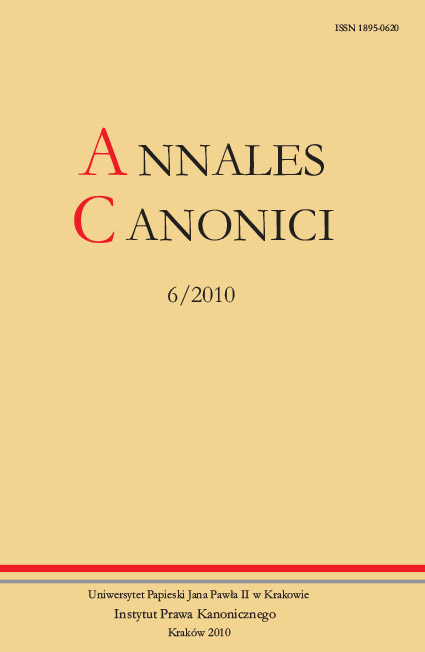Czy głoszenie nauki Kościoła może dyskryminować?
DOI:
https://doi.org/10.15633/ac.0601Abstrakt
The article is an attempt to answer the question from its title: Can teaching of the Church be discriminating? The author of the text is of the opinion that proclamation of teaching of the Church never can be a discrimination, even when it is connected with pointing out errors and admonishing for what is right and true. One rule is urgently needed to be observed by those who teach in the name of the Church. It is taken from Lk 6, 37: Stop judging and you will not be judged. Stop condemning and you will not be condemned.
Pobrania
Opublikowane
2010-12-30
Numer
Dział
Sympozjum
Licencja
Prawa autorskie (c) 2010 Remigiusz Sobański

Utwór dostępny jest na licencji Creative Commons Uznanie autorstwa 4.0 Międzynarodowe.
Autorzy publikujący w czasopiśmie udzielają jego wydawcy zgody o następującej treści:
- Autor zachowuje autorskie prawa majątkowe do utworu, a jednocześnie udziela wydawcy czasopisma zgody na jego pierwszą publikację w wersji drukowanej i wersji online na licencji Creative Commons Uznanie autorstwa 4.0 Międzynarodowe oraz zgody na wykonywanie opracowań, w tym przekładów.
- Autor ma możliwość udzielania zgody niewyłącznej na opublikowanie utworu w wersji, która ukazała się w czasopiśmie (np. zamieszczenia go w repozytorium instytucjonalnym lub opublikowania w książce), wraz z informacją o jego pierwszej publikacji w czasopiśmie.
- Autor może umieścić swój utwór online (np. w repozytorium instytucjonalnym lub na swojej stronie internetowej) jeszcze przed zgłoszeniem utworu do czasopisma.

